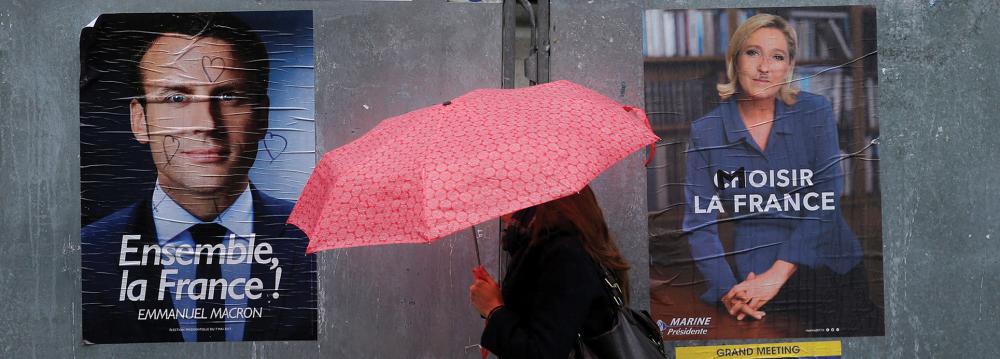The results of France’s April 23 first round closely reflected what the polls had predicted: Macron and Le Pen both advanced to the final round with 24% and 21.3% of the vote, respectively.
The National Front had never before garnered more than 20% of a presidential vote in France, marking a resurgence of rightwing appeal. Slightly more than 22% of voters abstained in the first round, the highest abstention rate France has seen since 2002, France24 reported.
On both sides of the Atlantic, a newly galvanized far right has made it more likely than ever that an anti-immigration candidate might triumph due to the widespread abstention of many on the left, who were bitterly disappointed that their chosen candidate did not make it to the final round.
Many Bernie Sanders supporters in the United States were angry that Hillary Clinton won the primary to become the Democratic candidate, accusing the party of favoritism and rejecting Clinton as part of the entrenched political establishment.
A month before the November vote, a YouGov/Economist poll found that only 60% of Sanders supporters said they would back Clinton. Some later transferred their loyalties to long-shot Green Party candidate Jill Stein and others even voted for Trump.
Across France, supporters of far-left candidate Jean-Luc Melenchon are still feeling the sting of defeat after their candidate was eliminated in the first round, despite taking 19.6% of the vote, his strongest showing ever.
Melenchon’s populist, shake-things-up message had appealed to many young people, and his candidacy offered a refuge for those on the left who are fed up with the ruling Socialists (the Socialist Party candidate, Benoit Hamon, won only slightly more than 6% of the vote, a resounding rejection of politics-as-usual).
As the country gears up for the final round of voting, a survey by Melenchon’s party found that two-thirds of his supporters plan either to abstain or to cast a “Vote Blanc”, which allows French voters to cast a blank ballot in protest against their options.
Melenchon himself, meanwhile, has broken with longstanding leftist tradition in declining to endorse Macron, even to keep Le Pen from power.
Like Trump, the National Front could find itself sailing to victory on a wave of leftist discontent.
Harris Interactive and Opinionway polls foresee an eventual win for Macron with around 60% of the vote, although his lead is slipping. But such decisive numbers might also lure many on the left into believing that they can afford to vote “blanc” to convey their general displeasure.
Much like Trump’s support base, advocates of Le Pen are exhilarated that their once-fringe candidate has made it to the final round and are expected to vote en masse.
Conversely, independent centrist Macron has not managed to fire up the public–leaving many of his potential backers feeling lukewarm about casting their votes.
Other Concerns
Both Le Pen and Trump have vowed to take a more nationalist approach to foreign policy that puts issues of sovereignty front and center, with Le Pen even threatening to hold a referendum on EU membership. And both have suggested that NATO is obsolete.
In a November interview with the BBC, Le Pen said NATO had lost its raison d’etre. Russian President Vladimir Putin welcomed Le Pen to the Kremlin on her visit to Moscow in March.
“I long have called for Russia and France to restore their cultural, economic and strategic ties, especially now when we are facing a serious threat from terrorism,” Le Pen said in talks with the Russian leader.
Le Pen also criticized the EU sanctions against Russia on her Moscow trip, calling them “counterproductive”.
For his part, Putin said Le Pen represented a “quickly developing spectrum of European political forces”–new political forces that perhaps cater better to Russian interests than the old guard.
Macron shares the dubious distinction with Clinton of having been targeted by the Russian hacking collective Pawn Storm (also known as Fancy Bear, Strontium or the Sofacy Group).
In a report released in late April, Japanese cyber-security firm Trend Micro noted that the group’s goal appeared to be to hack into the accounts of senior Macron campaign officials to access its email exchanges.
The Kremlin dismissed the report. Putin Spokesman Dmitri Peskov said Monday that Russia “never interfered” in foreign elections.
So far the polls still overwhelmingly favor Macron, who appears well positioned to take the presidency. But given the surprise outcomes from the Brexit and US votes, there are no guarantees–legions of voters disenfranchised by the political system seem newly attracted to the extremes that promise to upend the status quo.


